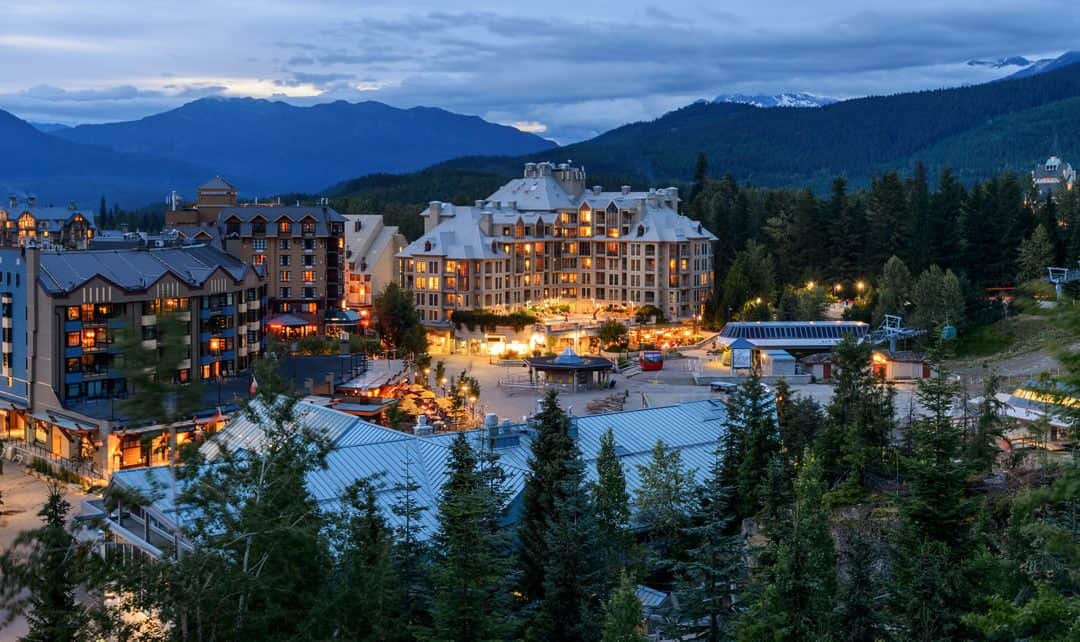B.C.’s proposed speculation tax for owners of resort properties is well intended but if it goes ahead in its current framework it could hurt tourist-reliant communities and be punitive to long-term residents, says a B.C. resort developer/builder.
While the proposed tax aims to target foreign and out-of-province investors who do not pay income tax in B.C. – and it includes owners who leave homes vacant – it could unfairly affect some B.C. residents who have owned second homes for many years, says Randy Trapp, president and CEO of Luxury Resorts West, a B.C. resort developer/builder.
In its current state, the tax, which would be in place next year, will only apply to B.C. owners of second homes assessed at more than $400,000 in Metro Vancouver, The Capital Regional District (Victoria and surrounding communities), Kelowna and West Kelowna, Nanaimo and parts of the Fraser Valley, including Abbotsford and Chilliwack.
Trapp says he doesn’t disagree with what the government is trying to accomplish. A speculation tax makes sense in downtown Vancouver and Victoria markets, for example, where presales are driving up prices, creating an “artificially inflated market,” making homes unaffordable for many full-time residents, he says.
“But I think the broad sweeping areas of the applicability of this tax are somewhat misguided insofar as they will have a negative impact on (sales) in areas that are tourist driven and tourist reliant,” says Trapp.
Trapp’s resort developments in Parksville (Vancouver Island) and Radium Hot Springs in southeastern B.C. do not fall under the speculation tax rules, so they could draw prospective buyers away from Greater Victoria and Kelowna, which are subject to the tax.
But that could drive prices up, creating an affordability issue, he says.
“One of my philosophical disagreements with the government over the tax and how it affects our industry is, quite frankly, that our customers are not speculators,” he says, noting speculators hold property “for a very short time” and sell as prices rise to make a profit.
“Many of our customers have owned property in excess of 10 years…They (government) are trying to make a one-size-fits-all tax and I don’t think that is the best way to go about it.”
He says a number of communities under the speculation tax umbrella are tourist reliant. The tax could negatively impact their growth.
While Trapp couldn’t give specifics on the impact of the tax in those tourist communities – Kelowna, for example – because his company has no experience there, he commented on the importance of tourism to Parksville, where he has an ocean-side resort development.
Under the government’s original proposal, Parksville was subject to the speculation tax, but the business community and city took exception and the province backed down, he says.
If applied in Parksville, the speculation tax would have dire effects, he says, noting 40 per cent of the city’s economic activity is driven by tourism, representing about $130 million annually.
“Parksville has a high percentage of second homeowners who have come for generations. They buy groceries…they buy gas, pay property taxes and patronize all of the ancillary businesses and they do it at a much higher per capita rate than, say, a full-time resident. To put in place a tax that suppresses or dissuades that sort of economic activity…I think is not a practical approach to what goes on in those communities.”
Trapp says he has heard from developers in tax-proposed areas that they are putting developments on hold until they see how the tax rules unfold.
Under the current proposal, non-B.C. residents would add 0.5 per cent of the tax assessed value of the property in 2019, he says. That means that on a property assessed at $650,000 the owner would pay an additional $3,250 in property tax. In 2020, the tax would jump to two per cent – an additional $13,000 tax.
Trapp is uncertain how the government will tax B.C. residents on second properties. “I haven’t seen any government communication that clearly spells that out.”
While a Royal LePage report forecasts that the speculation tax could result in a dip in prices or resort properties across the province by almost three per cent, that report doesn’t tell the whole story, Trapp says.
“These are highly populated regions, so they will have a disproportionate effect on the (home price) average in the province,” he says. In resort areas that are tax-exempt “there is an opportunity for a market lift.”
But that market increase can also have a negative impact on affordability, he points out.
“What I hope the government does is if they don’t eliminate this tax proposal completely, is that they overhaul it in such a way that it truly does target speculators.”
The proposed tax legislation will be tabled in the fall legislature.
Don Procter is a contributing writer for REM.













